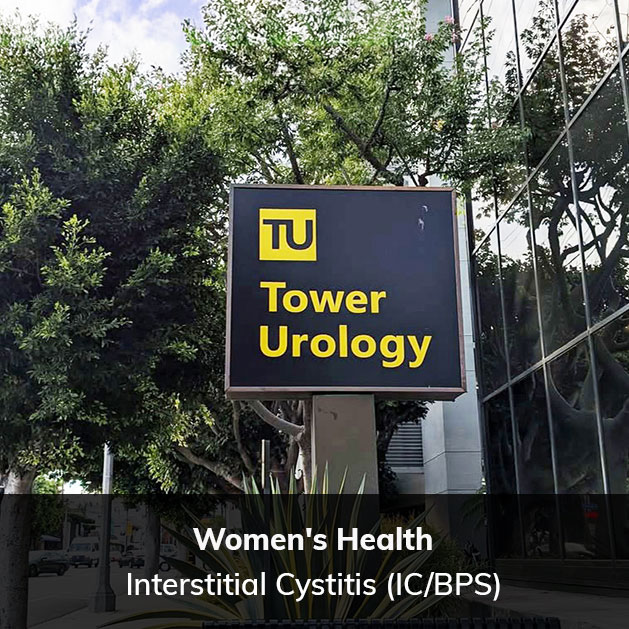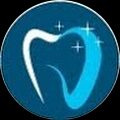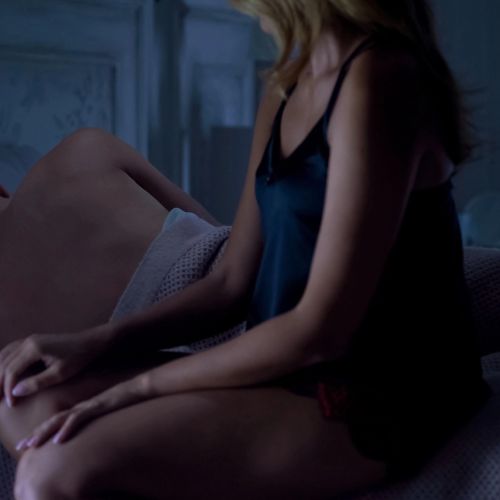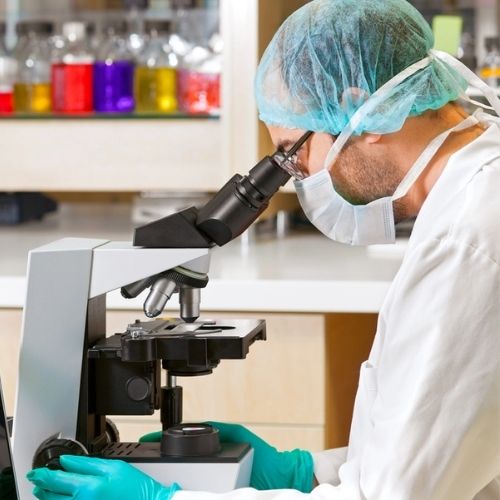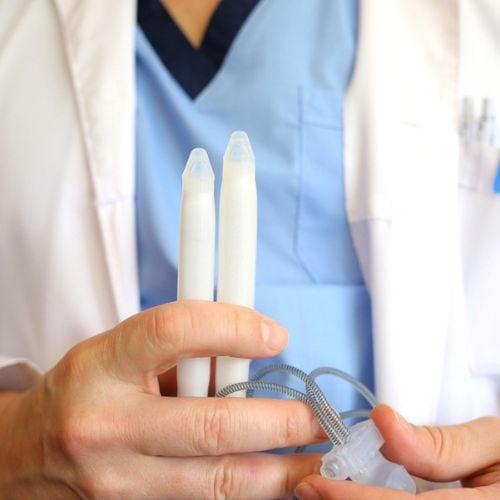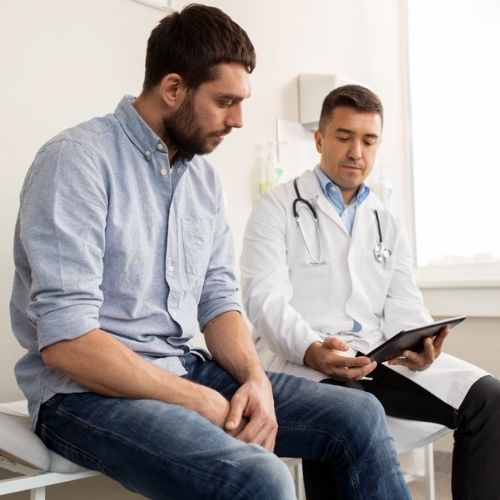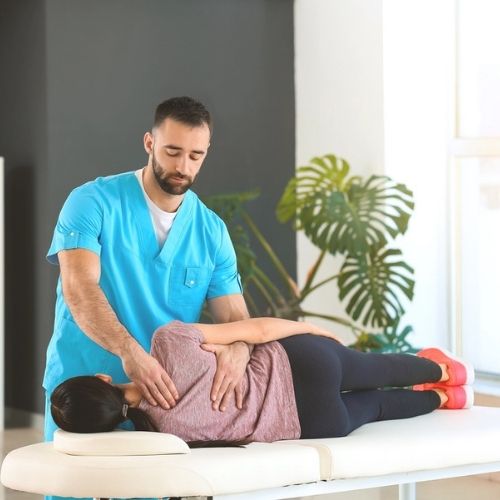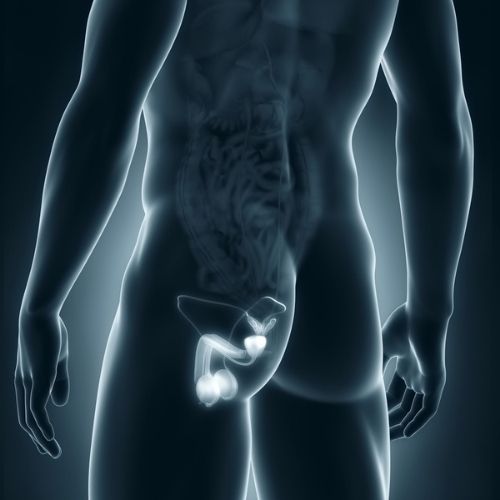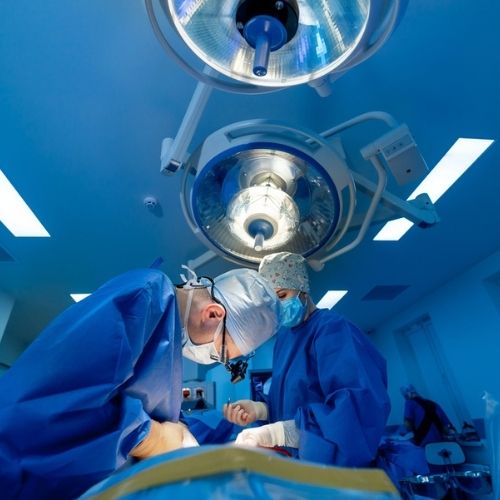What is interstitial cystitis?
Interstitial cystitis (IC), also known as bladder pain syndrome and painful bladder syndrome, is a chronic condition that causes discomfort or pain in the bladder and pelvic region. It is often accompanied by a frequent and urgent need to urinate.
IC is a complex condition that can significantly impact daily life. While it’s more common in women, men can also be affected.
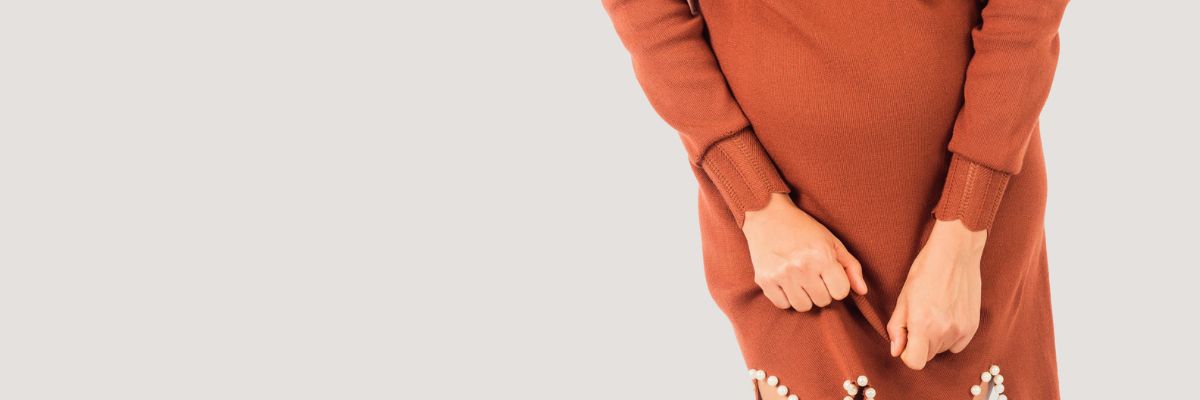
What causes interstitial cystitis?
The exact cause of IC isn’t fully understood. However, known causes include a defect in the bladder lining, an abnormal immune response, nerve dysfunction, Hunner or other types of bladder ulcers, or even a history of bladder and urinary tract infections.
Who is at higher risk of interstitial cystitis?
Certain factors seem to increase the chance of suffering from this condition, including:
- Being female
- Having a history of chronic pain disorders (such as irritable bowel syndrome or fibromyalgia)
- Having a family history of IC
What are the symptoms of interstitial cystitis?
There are numerous common symptoms of IC. These include:
- Persistent bladder or pelvic pain
- A constant urge to urinate (urinary urgency)
- Frequent urination (urinary frequency), often in small amounts
- Pain during sexual intercourse
These symptoms can vary in severity and may flare up when you are under greater stress than usual or after consuming certain foods or drinks.
How do we diagnose interstitial cystitis?
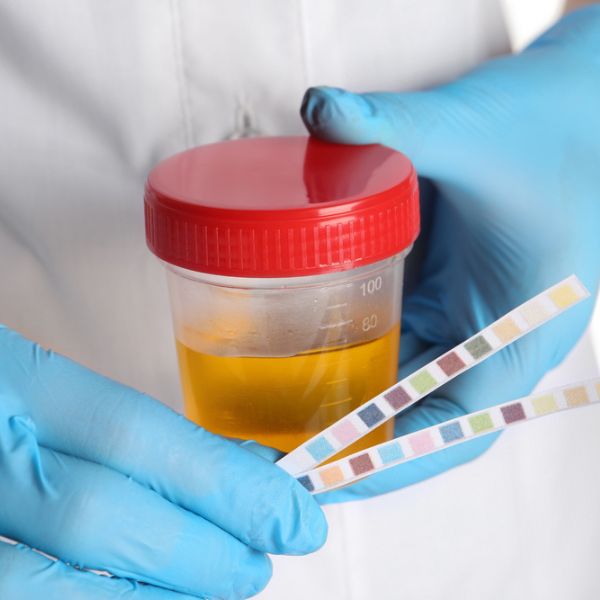
Diagnosing IC can be challenging because there’s no single test. Instead, we rule out other conditions by performing various procedures, such as taking a complete medical history, conducting physical exams, and sometimes even procedures like a cystoscopy or bladder distension.
Treatment for interstitial cystitis
While there’s no cure for IC, many ways exist to manage your symptoms and improve your quality of life. We always create a personalized treatment plan for each patient. We’ll work together to find the approach that works best for you, helping you feel better.
There are numerous treatment options available. They include:
Lifestyle changes
One crucial change is to avoid bladder irritants, such as caffeine, acidic foods, alcohol, and spicy foods. Another is to incorporate stress management techniques.
Medications
These can include oral drugs like amitriptyline or bladder instillations, which can help reduce pain and inflammation.
Physical therapy
Working with physical therapists on exercises that focus on the pelvic floor can also be very helpful,
Nerve stimulation techniques
Nerve stimulation techniques include sacral neuromodulation (SNM). In this therapy, a small device is implanted that sends mild electrical pulses to the nerves near the sacrum (lower back). The pulses help control bladder, bowel, and pelvic floor functions.
The device works like a pacemaker for the bladder and bowel, helping to restore regular communication between the brain and the pelvic organs. This improves symptoms of bladder or bowel control problems.
Surgery
Urinary diversion or bladder augmentation surgeries may be considered for our patients with the most severe symptoms.
What should you expect during your initial consultation with Tower Urology?
When you come in, you can expect the healthcare providers at Tower Urology to take a detailed history, including what your symptoms are, what other medical conditions you have, which treatments you’ve tried so far, and what your dietary habits are like.
We will then perform a physical exam to assess any pelvic floor dysfunction as a possible contributing factor, and also perform a cystoscopy. In a cystoscopy, a small flexible camera is inserted into your bladder to look for ulcers that may be causing you pain.
What is the Tower Urology treatment plan?
We tailor the treatment plan to your specific needs, based on the findings from your workup. For example:
If you have pelvic floor dysfunction
We will discuss pelvic floor physical therapy or injections into the painful muscles to help relieve the spasms that cause pain
If you have painful bladder ulcers
We will encourage them to facilitate their healing. In this procedure, we use a high-frequency electric current to destroy the ulcer. Then, we will administer an effective medication called cyclosporine to help prevent the ulcers from reforming.
If we don’t find pelvic floor dysfunction, ulcers, or another apparent cause for your pain
Then, we will work together to develop a treatment plan to manage your symptoms. This plan could include hydrodistension, bladder instillations with medications, oral medications, and dietary modifications.
In the most severe cases
We may recommend removing the bladder, although this is something we always strive to avoid.
Why Tower Urology is your best choice in Los Angeles for interstitial cystitis doctors near you
Controlling IC/BPS symptoms can be a process, so it’s important to establish care with a provider who will continue to work with you to find the solution that is right for you individually. Fortunately, the urologists at Tower Urology are experts in treating this condition and are always willing to help.
The main advantage of Tower Urology lies in our unwavering commitment to providing world-class urologic care through advanced technology, personalized treatment plans, and a patient-centered approach. With a reputation for excellence and innovation, we deliver superior outcomes that distinguish us as leaders in urologic health.
Tower Urology is a proud affiliate of Cedars-Sinai Medical Center, ranked #1 in California and #2 nationwide by U.S. News & World Report. This partnership reflects our dedication to delivering the highest standard of urologic care alongside the best urologists in Los Angeles. Our years of experience and access to Cedars-Sinai’s world-class facilities ensure that our exceptional and innovative urological care positions Tower Urology as a leader in Southern California.
We invite you to establish care with Tower Urology.
Tower Urology is conveniently located for patients throughout Southern California and the Los Angeles area, including Beverly Hills, Santa Monica, West Los Angeles, West Hollywood, Culver City, Hollywood, Venice, Marina del Rey, and Downtown Los Angeles.
Our services include treatment for pelvic organ prolapse, menopause/hormone management, chronic pelvic pain syndrome in women, shockwave therapy for pelvic pain, interstitial cystitis, lichen sclerosis and planus, urethral diverticulum, urethral stricture disease, urinary fistulas, and vaginal mesh complications.
Interstitial cystitis FAQs
Primary care physicians typically evaluate cystitis first, after which patients may be referred to specialists, including urologists, urogynecologists, or nephrologists.
Patients may be referred to specialized centers with multidisciplinary teams, such as Tower Urology, for interstitial cystitis or complex bladder issues. These teams include urologists, surgeons, physical therapists, and lab technicians.
Absolutely. Pelvic floor dysfunction can mimic interstitial cystitis (IC) symptoms, as tight pelvic floor muscles can put pressure on the bladder, causing spasms that lead to urgency, frequency, and pain.
Research shows that 87% of women with IC have pelvic floor dysfunction with levator muscle pain, suggesting a strong connection between these conditions. The symptoms can be so similar that what appears to be IC might be pelvic floor issues, and many patients receive IC diagnoses without proper bladder scoping to confirm the presence of characteristic lesions.
Treatment often involves a multimodal approach, including pelvic floor physical therapy, muscle lengthening techniques, and lifestyle modifications, regardless of whether the root cause is IC or pelvic floor dysfunction.
Sacral neuromodulation (SNM) is generally safe but comes with potential risks and complications that patients should consider. The therapy has been proven effective for over 20 years, with success rates showing symptom reduction in 67% of patients even after five years.

